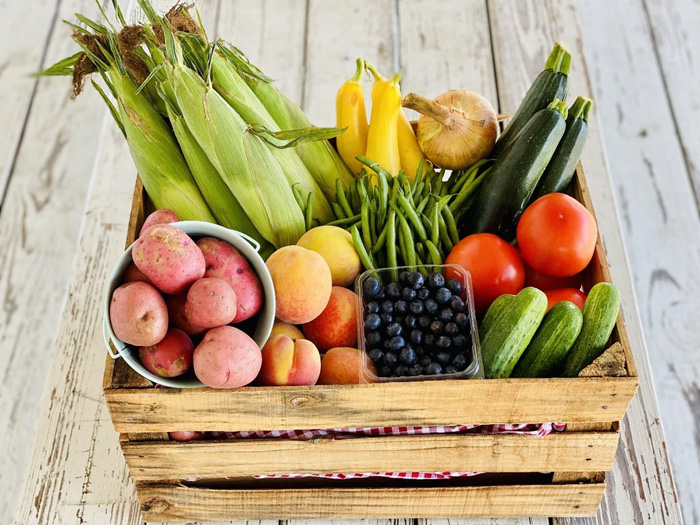We all love the idea of eating local. After all, who can argue with less dependence on erratic supply chains, access to super fresh food, and the ability to support neighbouring farmers?
Unfortunately, often the price tag inhibits our zeal for local. Sometimes it seems our regional producers just can’t beat the prices of our favourite imported food produced far away.
Eating local requires a different approach to grocery shopping and menu planning, especially on a budget. You may consider some initial investments, such as plenty of canning jars, an extra freezer or fridge, and equipment such as a grain mill, canner and/or dehydrator. You also may choose to switch to a seasonal menu plan, buying in bulk and preserving what you can in every season. Practice some of your own DIY projects such as gardening, baking bread, foraging, or even keeping your own laying hens. When you consider the big picture, you may find that you save money and find value in other areas, such as health, entertainment, and even education. Eating local has many rewards and benefits that are not strictly related to delicious food.
We believe local food on a budget may be challenging to navigate at first, but it can be done. Over the next several months, we will delve into various topics that relate to eating local economically. Stay tuned!
This article written by Leah Bouchard for the Stuartburn Emerson-Franklin Local Food Initiative. Leah and her husband Guy and their three young sons live on a second-generation family farm in southeastern Manitoba. Based on 160 acres, the farm nestles in an old growth oak forest on the banks of the Roseau River. With a deep commitment to sustainability and environmental stewardship they operate Green Pastures Farm and raise turkeys, sheep, crops, and wool. They love connecting people to their food (and fiber), the land, and sharing all the lessons and perspectives the farm has to offer. Based on values of hard-work, responsibility, and integrity, they desire to leave the land (and their community) a better place for future generations.
Brought to you by the Stuartburn Emerson-Franklin Local Food Initiative.




